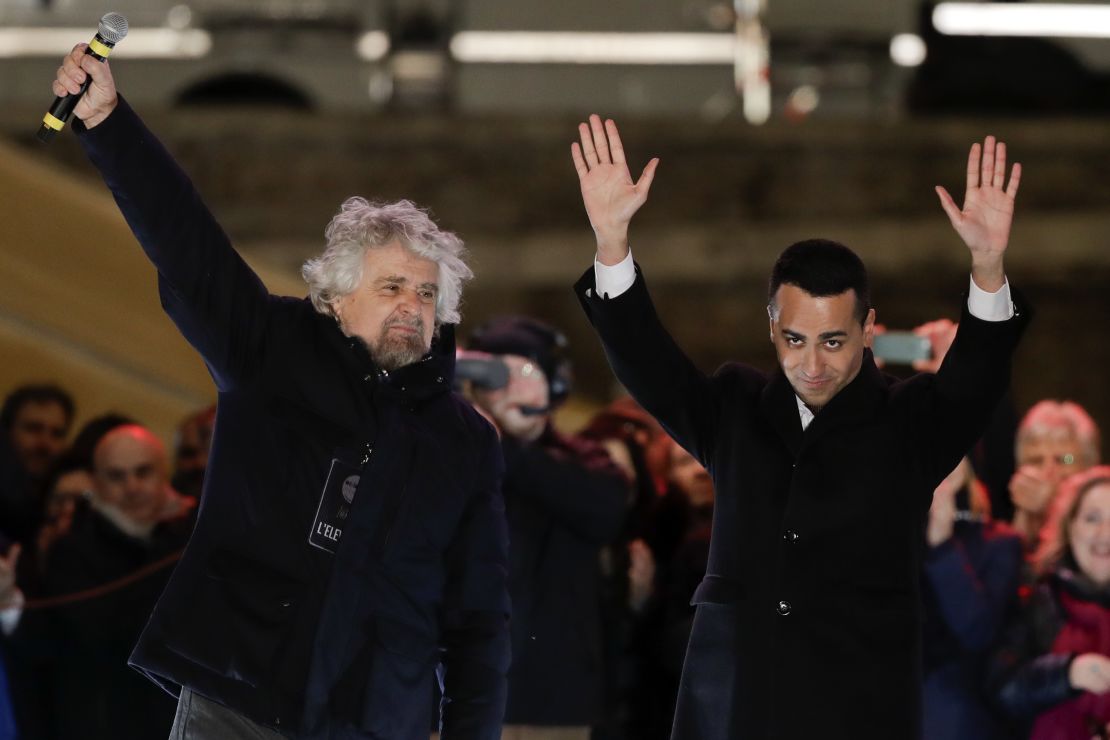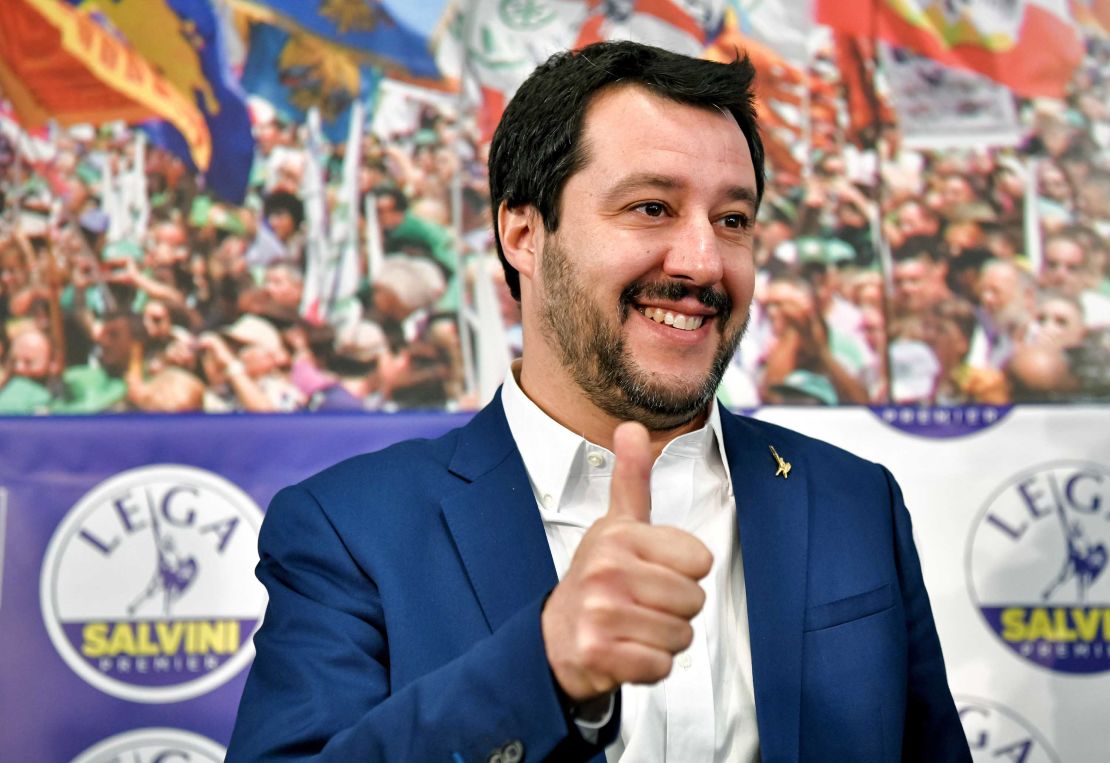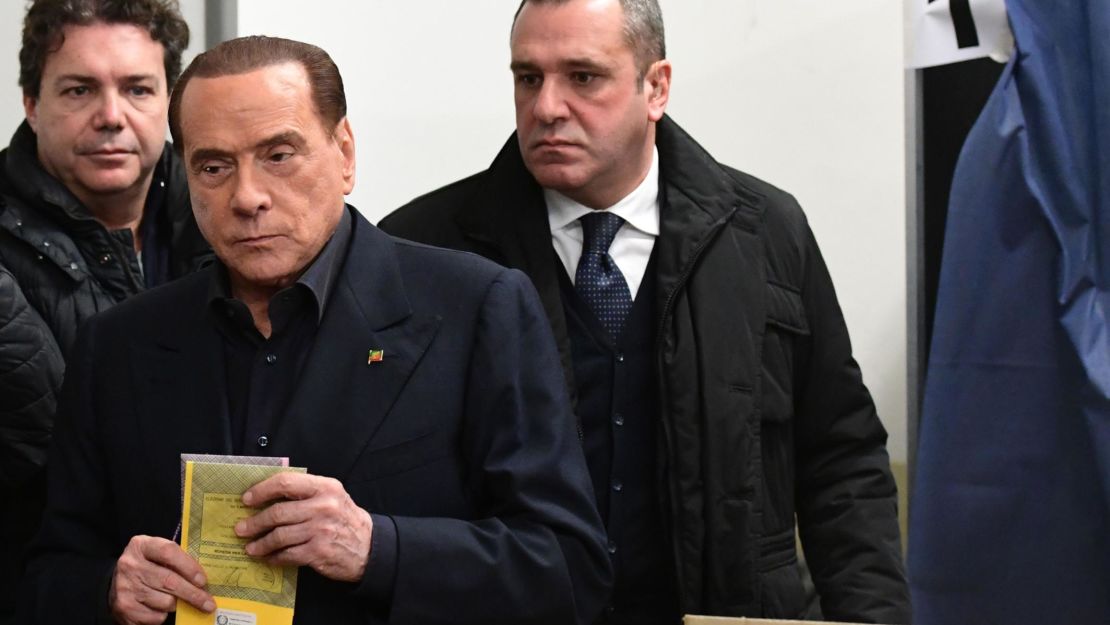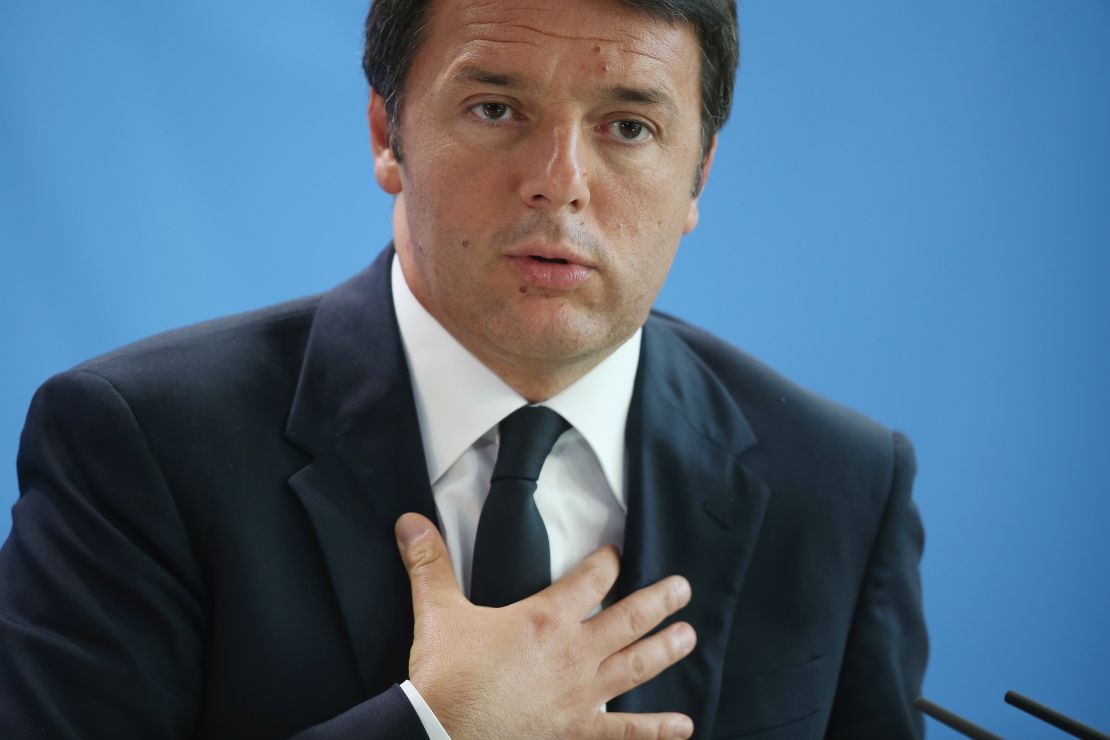As the dust settles on Italy’s national election, there are clear winners and losers, but no clear outcome after a divisive campaign dominated by anti-immigrant rhetoric and promises that will be hard to keep.
As the first exit polls were released shortly before midnight Sunday, a wave of disbelief turned to unbridled enthusiasm at the headquarters of the Five Star Movement (M5S) in the green-carpeted basement of the luxury Parco dei Principi hotel in central Rome. The party was on the top of every exit poll and looked set to claim almost a third of votes, the largest of any single party, and some 14 percentage points more than anyone else.
Luigi di Maio, the young leader of the anti-establishment party founded by former comedian Beppe Grillo, didn’t speak publicly on Sunday, but he was photographed by party faithful with an ear-to-ear grin hugging everyone who came anywhere near him.
Di Maio, at just 31, has come to symbolize youth discontent in Italy, campaigning along a fine line between hope and fear, using words like “us” and “them,” and referring to potential voters as “my generation.” In a blog post before the vote, he wrote, “They look at us because we are the future of the country, but they still do not trust us completely.”
M5S may have very well won the hearts of young and disgruntled voters, but it is still a long way from winning power in Italy if the movement stays true to its grassroots. Because M5S campaigned on a promise of independence and transparency, it is unlikely to join a coalition. Di Maio has flirted with the idea of forming a coalition before, but the “Grillini,” as Five Star supporters are called, have so far balked at the idea.

“The Five Star’s new mantra should be that it is impossible and unlawful [to form] any majority without us,” said Jacopo Iacoboni, a leading political analyst with La Stampa newspaper. “That is to say, nobody can try to exclude [them] from the big game now.”
League ascendant

M5S isn’t the only party celebrating. Matteo Salvini, the 44-year-old leader of the populist and xenophobic League – formerly known as the Northern League – tweeted “Grazie” to his voters just before midnight as he watched his party climb to the second rung in early exit polls. The latest tally on Monday morning put the League at around 17.5% of the vote, but there are still uncounted ballots.
The League went into the election as a junior partner in a center-right coalition that also includes Silvio Berlusconi’s Forza Italia party and the neo-fascist Brothers of Italy party. But as the votes were counted, Salvini looked likely to emerge in the driver’s seat. Forza Italia underperformed, and is set to come in several points behind the League at around 14%, according to the Interior Ministry.
Berlusconi, once a kingmaker, is now something of a political pauper. The former Prime Minister told voters that the reason his party fell short was that he was not the actual candidate, having been banned from office until 2019 for tax fraud. Berlusconi had hoped to guide the center-right coalition, installing Antonio Tajani as Prime Minister until sweeping back into power next year.

Now, Berlusconi has been relegated to Salvini’s whims. On Monday, Salvini told reporters that he himself would lead the center-right coalition. “Millions of Italians asked us to lead them out of uncertainty,” he said. “We will lead them. I see this as a vote for the future, not the past.”
Salvini, who once took a bulldozer to a Roma camp and introduced legislation for “Italian only” segregated buses, reinvented himself in this electoral campaign. He has lately steered his party toward a more centrist approach.
Salvini is a staunch supporter of US President Donald Trump, traveling to a campaign rally in Philadelphia in 2016 and posing with the then-presidential candidate. Salvini campaigned under an “Italy First” banner, clearly borrowing from one of Trump’s favorite catchphrases.
Late campaigning by the Five Star Movement in the southern regions of Italy borrowed a page from the American film “Three Billboards Outside Ebbing, Missouri” and used three red billboards to remind voters there how Salvini used to refer to them. “I said you stink,” said one. “Now I want your vote,” said another. The third simply stated, “Why not, peasants?”
The center-left Democratic Party under the joint stewardship of former premier Matteo Renzi and Prime Minister Paolo Gentiloni was the undisputed loser in Sunday’s polling. The party appeared to have gained only around 19% of the overall vote, and its center-left coalition around 23% in total. They will win a few more points based on a new electoral law that gives leading coalition members the percentage points of those parties that win less than 3%, but it won’t be enough to make a difference.

Berlusconi and Renzi reportedly met late Sunday for what now seem like desperation talks. Even if they cobbled together some sort of new centrist compromise coalition, they surely would never be able to solidify enough percentage points to form a majority.
Now the ball is in President Sergio Mattarella’s court. Once the votes are certified, likely late Monday, he will start meeting with the winners to begin what are expected to be tense and tedious negotiations after such a vitriolic campaign. Italians are watching to see who he meets with first.
“Will italian president Sergio Mattarella give responsibility to form a government to Mr Salvini (first coalition) or Mr Di Maio (first party)?” tweeted La Stampa’s Iacoboni. “In any case, it will be very tough to avoid a populist, more or less eurosceptic, and more or less anti-migrant leader.”
That sentiment is one everyone seems to agree on. Writing in the widely respected newspaper Il Fatto Quotidiano, political commentator and author Marco Travaglio summed it up: “The Italians braved cold temperatures to vote under a demented electoral law to scream a giant, supersonic ‘F…You’ to the ancient regime.”
Change, it seems, is the only certainty.

